The Peculiar Legacy of E.E. Cummings
Revisiting his first book, The Enormous Room, a reader can get a sense of everything appealing and appalling in his work.
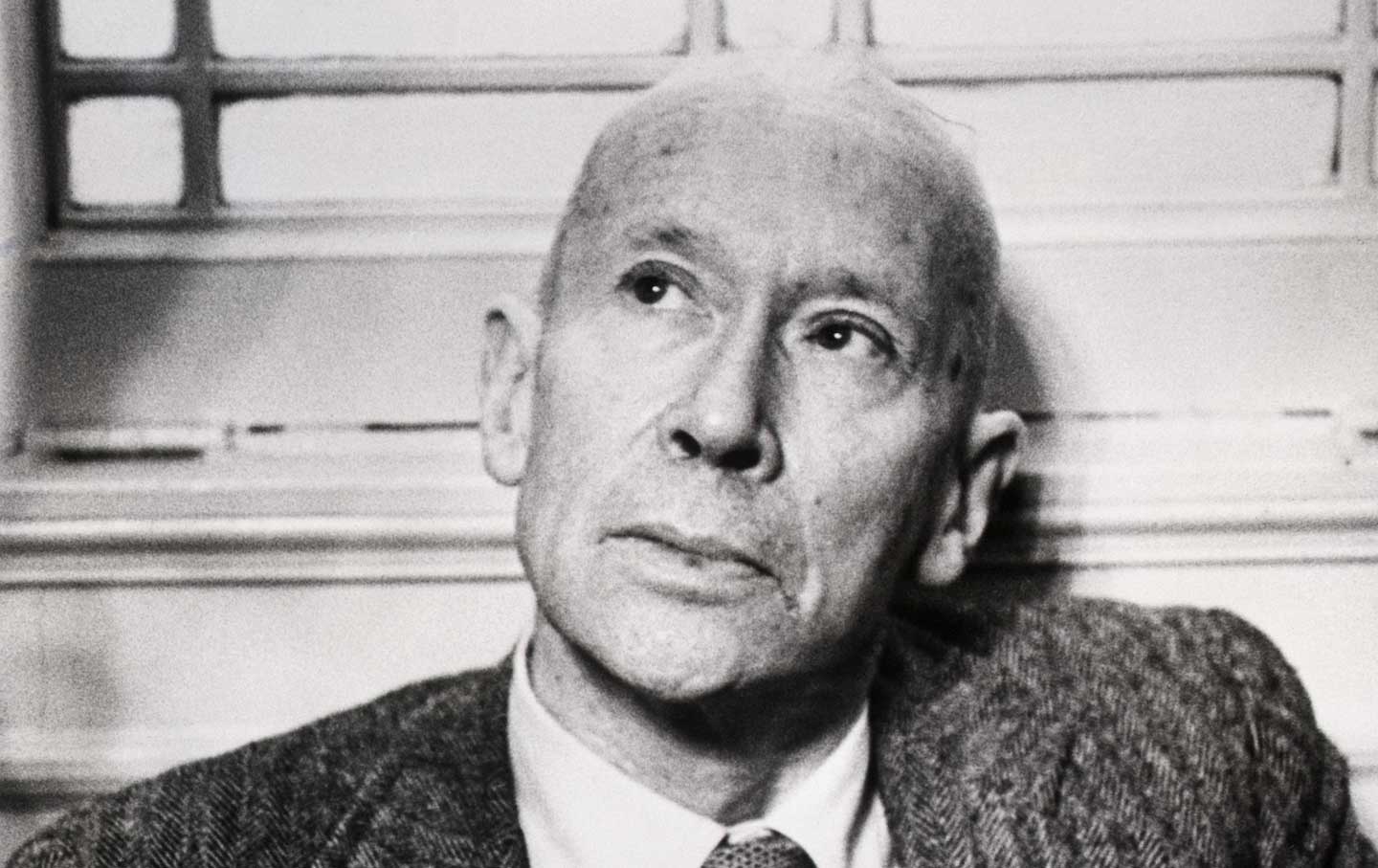
When and why did the work of E.E. Cummings become marginal? In the 1920s and ’30s, he was a clear standout among the many experimental writers and artists who constitute what we now call modernism. He published in the most influential “little magazines”—from The Liberator, where Jamaican radical Claude McKay championed an early poem, to the relatively staid Dial, which gave him its annual prize for “service to letters” in 1925, awarded to Marianne Moore the previous year and to William Carlos Williams the next. He was one of the first poets to receive a Guggenheim Fellowship, and he corresponded extensively with Ezra Pound and John Dos Passos—a classmate at Harvard—and later with Elizabeth Bishop and W.H. Auden. But when I read Cummings in grad school, it was at the urging of my father-in-law, a union power plant worker who once included a late sonnet, “i carry your heart with me(i carry it in / my heart),” in a Christmas gift to his wife. I had to buy my own copy of the Complete Poems because the many copies at my university’s library were always on loan.
Books in review
The Enormous Room
Buy this bookInfluential avant-gardists rarely achieve a wide readership, and it’s rarer still to maintain that readership for a century, yet Cummings has become hard to find in book reviews and scholarly conversations. Of course, writers fall out of the canon almost as often as they join it, and you won’t find Louise Bogan or Kenneth Rexroth on many undergraduate syllabi either. But I think the turn away from Cummings has to do with a kind of exhaustion at his preoccupations and stylistic quirks, which were consistent across his 58 years of published poetry. You’ll almost always find variant punctuation, prefix play, the persistent uncapitalized “i”—once humble and porous, but that now feels like a text message—and an extraordinary faith in romantic, erotic love. “i carry your heart” is paradigmatic, teasing the sonnet form’s expectation of a conceptual shift—“here is the deepest secret nobody knows / (here is the root of the root and the bud of the bud”—only to end with a very slightly modified version of its opening line. The circularity is not tautological but gravitational, suggesting “i” am never out of “your” orbit nor “you” mine.
It’s a message of total interdependence, but read in the present, it can feel like a relief—an acknowledgement that our finding and maintaining love isn’t just another achievement in a meritocratic life but a rare emergence whose adequate consequence is nothing less than a transformation in how our life is lived. Even so, I think part of the relief is a reprieve from thought. If “love is love is love”—as Lin-Manuel Miranda, hopefully intentionally paraphrasing Gertrude Stein, once said—then it doesn’t have to be like anything else, remind us of anything else, inform anything else, lead elsewhere. It can be a closed system, to the delight of the lovers who (also hopefully intentionally) delight in the rest of the world’s exclusion. If we’ve more or less stopped talking about Cummings’s poetry, it’s because his version of transcendent love doesn’t usually help us to talk about anything else. But we don’t need to stop where he does. Love itself almost never does.
Cummings’s first published book of any genre, The Enormous Room (1922), offers an expanded emotional landscape, and its return to print brings that fuller range into clearer view. The novel describes Cummings’s three-month incarceration at a camp de triage in Normandy toward the end of the First World War. Cummings had arrived in Europe as a volunteer with the Norton-Harjes Ambulance Corps, an odd organization affiliated with the Red Cross but chaired by the novelist Henry James, which had solicited “gentlemen volunteers” from the Ivy League as a way of protecting America’s favorite sons from the looming draft and the horrors of trench warfare. In April 1917, Cummings signed up alongside Dos Passos and fellow Harvard poet Robert Hillyer, just six weeks before President Woodrow Wilson signed the Selective Service Act.
On the ship crossing the Atlantic, Cummings met a kindred spirit and fellow volunteer named William Slater Brown, and they became inseparable during the weeks they awaited assignment in Paris. Once near the front, Cummings and Brown found themselves mostly safe but profoundly bored, and they bristled against the menial demands of their French handlers. When military censors saw that Brown was making fun of their superiors in his letters home, he and Cummings were arrested as suspected spies (though allowed to finish their “nettoyage” of their lieutenant’s car first). This is where The Enormous Room begins.
Cummings endured several days of handcuffed train travel, followed by a flat-footed interrogation: “Est-ce-que vous détestez les boches?” “Les boches” is French slang of roughly the same vintage and meaning as “the Krauts,” and Cummings knows what he’s supposed to say. “To walk out of the room a free man I had merely to say yes. My examiners were sure of my answer.” But Cummings is either too principled or annoying to cooperate: “Deliberately, I framed the answer: ‘Non. J’aime beaucoup les français.’” And just like that, he’s off to the camp de triage—so-called because a team of examiners would arrive seasonally to process the inmates and either discharge them to their home nations or move them to a permanent detention facility.
The Enormous Room isn’t quite a memoir, and despite frequent invitations to see it as a dissolute Pilgrim’s Progress, it doesn’t move with anything like conventional narrative development either. Instead, it’s a bit like one of those David Foster Wallace or Gary Indiana travel essays where they have a terrible time abroad, only blown out to book length. When he’s told he’s being moved to “Mah-say,” Cummings imagines beachfront detention: “Marseille! I was happy once more. I had always wanted to go to that great port of the Mediterranean, where one has new colours and strange customs, and where the people sing when they talk.” But we already know that he’s headed to La Ferté-Macé in the dreary North, “a mean little town, where everybody snickers and sneers at you.” A bad thing can always be worse, and one of Cummings’s gifts is that he knows this. Once situated, he discovers that he has missed the examiners by just a few days, and so he spends nearly three months in one of the prison’s two truly enormous rooms, sleeping and killing time by asking his 30 or so comrades about their lives before they arrived.
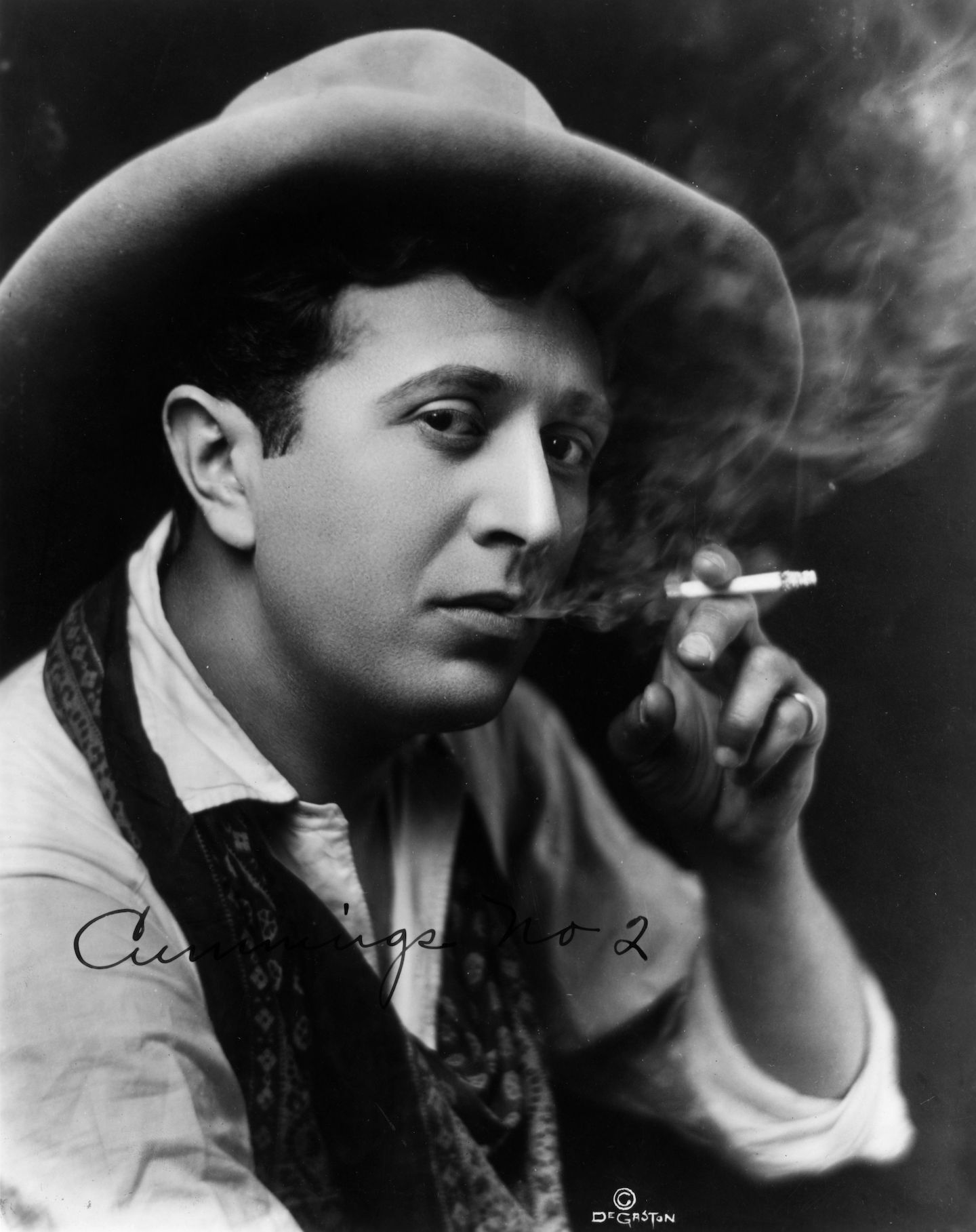
Critics have differed on whether The Enormous Room is better understood as an account of the war or of imprisonment, but this mostly raises questions about their understanding either of experience or of the entangled histories of these two systems of violence. Ruth Wilson Gilmore, for instance, describes “the ‘creative destruction’ of World War II” feeding directly into the expansion of California’s carceral state. Cummings is attuned to this process, and the amorphousness of the book’s lengthy middle corresponds with the disassociation that quickly set in for the incarcerated. He explains this strategy at the beginning of the fifth chapter:
I make this point clear for the benefit of any of my readers who have not had the distinguished privilege of being in jail. To those who have been in jail my meaning is at once apparent; particularly if they have had the highly enlightening experience of being in jail with a perfectly indefinite sentence. How, in such a case, could events occur and be remembered otherwise than as individualities distinct from Time Itself?… It is for this reason that I do not purpose to inflict upon the reader a diary of my alternative aliveness and non-existence at La Ferté…. I shall (on the contrary) lift from their grey box at random certain (to me) more or less astonishing toys.
Much of the rest of The Enormous Room is a slog because Cummings is so committed to this technique, and he lifts his toys—the sketchy biographies of his fellow inmates, most of whom are impaired in a way that their failing to pass the same interrogation makes tragic sense—with the grayness of that box in mind. For Cummings, narrative is necessarily subordinate to freedom and individuation, and without the ability to make any decisions about his own day (much less life), existence falls away.
This could be a powerful abolitionist sentiment, but it also authorizes condescension. The other prisoners are flattened in his portraits, each “a crude imitation of humanity.” When an inmate’s wife and children arrive at the gates and ask to be admitted—“[she] said she was tired of living without her husband…and wanted to simply share his confinement”—we would expect the Cummings of “i carry your heart” to be moved. We’d be wrong: “‘Looks like a fucking hoor,’ was the Belgian-Dutch verdict, which was obviously due to the costume of the lady in question.”
We learn still more from the cracks in this condescension. Cummings is quite moved by the imprisonment of one Count Bragard, “a perfect type: the apotheosis of injured nobility, the humiliated victim of perfectly unfortunate circumstances.” Count Bragard claims to have known Paul Cézanne and Cornelius Vanderbilt and says that he was arrested at the French front on assignment for the illustrated English weekly The Sphere, for whom he was supposed to be painting life in the trenches. When Bragard secures early release and uses it to steal from the other inmates—he tells them he’ll send back needed comforts from Paris and London, but simply pockets their cash—Cummings worries that this heel turn will shake “the reader’s faith in human nature.”
There’s always a curtain of irony between us and the situation being described, and even if Cummings’s narration doesn’t wink at us during the Count Bragard episodes, the very fact of his name probably does. Still, the dehumanizing horror of imprisonment and war appears significantly more horrifying if you belong to the more rarefied classes of humanity. “Cézanne” and “Vanderbilt” succinctly describe the parameters here—not just those who appreciate art and the attempts to push the boundaries of what art can do, but those who do so while also attending dinner parties with our best-known oligarchs.
Spending enough time with Cummings, we begin to understand that this is compatible with the transcendent lover that emerges in his poetry. It is much easier to eschew achievement and material obsession if you’ve never known need as a grinding daily reality, or if you’ve only come to experience it through your voluntary participation in an era-defining catastrophe. Which brings us back around to modernism and Cummings’s status within it.
The very idea of modernism has become inseparable from the hideous politics of (many of) its foremost practitioners. This is largely thanks to the work of scholars in the 1980s and ’90s, who wrote against the formalist “New Criticism” paradigm that initially championed poets like T.S. Eliot and Ezra Pound. Yet doing so effaced a productive dilemma, which the poet and critic Rachel Blau DuPlessis put plainly in her pathbreaking collection The Pink Guitar: Writing as Feminist Practice (1990)—why it is that so often “the radicalness of the poetics is matched by almost unquestioned conservatism.” Rather than kick these men from the canon, DuPlessis and others showed how spending more time with their work could help us to understand an aesthetic and intellectual history riven by prejudice, and to better account for our own unruly tastes.
Restoring these dilemmas has been a very good thing, especially if we want to use art to more clearly understand the past. But potted narratives can become “crude imitations of humanity” themselves, and the shrinking and flattening that often takes place in our survey courses and belletristic paraphrases gives a skewed impression of who was bad and how. When we want to talk about American modernists and their prejudices, we reach for expatriates like Pound, Eliot, and Gertrude Stein, obscuring the fact that similar patterns of thought flourished in our own soil. But many of the writers who emerged from the Norton-Harjes Ambulance Corps’ experience of the war developed similar views—they just managed to do so while remaining close to the corridors of American power.
Through the 1930s, Cummings’s correspondence with Pound moved beyond garden-variety antisemitism to a joking admiration of “dolce-far-niente” Hitler. (We probably shouldn’t be surprised that when Pound was arrested for treason for collaborating with Mussolini, Cummings put up $1,000 for his defense.) Cummings published another travelogue novel after visiting the Soviet Union in May and June of 1931, in which he found Lenin’s Tomb to be a tacky deification of revolutionary secularism, “a trivial idol throned in stink.” I wonder if he knew that they were sculpting Mount Rushmore at the same time.
Popular
“swipe left below to view more authors”Swipe →One can understand why the editors at The New York Review of Books excluded the preface to The Enormous Room that Cummings added in 1934: “Russia, I felt, was more deadly than war: when nationalists hate, they hate by merely killing and maiming human beings; when internationalists hate, they hate by categorying and pigeonholing human beings.” I think most of us can agree that actual violence is worse than rhetorical violence, and recasting his entire experience in the camp de triage as preparation for anti-Bolshevism doesn’t bring much to The Enormous Room. But it is illuminating if we’re thinking about where and how experimental art is used politically, and how the well-heeled progeny of elite, humanist institutions can become such willing advocates for cruelty. None of this stopped Harvard from inviting Cummings to deliver a lecture series in 1952–53.
There was at least one American writer who saw this coming and was rightfully critical of his peers. Randolph Bourne was an essayist and principled pacifist whose own “A War Diary”—which appeared in the short-lived The Seven Arts magazine about five months after the United States’ formal declaration of war—voiced serious skepticism about the Norton-Harjes volunteers: “Minor novelists and minor poets and minor publicists are still coming back from driving ambulances in France to write books that nag us into an appreciation of the ‘real meaning.’”
But Bourne is less annoyed by the urgency of their argument than by what it rests upon, continuing: “[Too] many of these prophets are men who have lived rather briskly among the cruelties and thinnesses of American civilization and have shown no obvious horror and pity at the exploitations and the arid quality of the life lived here around us. Their moral sense had been deeply stirred by what they saw in France and Belgium, but it was a moral sense relatively unpractised by deep concern and reflection over the inadequacies of American democracy.”
Bourne was almost certainly referring to Cummings, Dos Passos, and Hillyer, who had published together as Eight Harvard Poets (1918) and all ran in the same Greenwich Village circles as Bourne. Cummings’s companion William Slater Brown had also overlapped with Bourne at Columbia, where both had been involved in student journalism. But they had had very different experiences of the school, where Bourne had fought for higher wages for dormitory cleaners and befriended the professor Henry Wadsworth Longfellow Dana, who would be fired by Columbia for vocally opposing America’s entry into the war—a move allowed under the Espionage Act, which criminalized any effort to interfere with the actions of the military, including recruitment.
Dana, as it happens, was Cummings’s travel companion on that later trip to the Soviet Union—at least until his unsatisfying stance on American freedoms (whose?) led Cummings to seek other accommodations. But I probably wouldn’t have been quite so shocked by the lack of compassion that Cummings shows to the unemployed, gay college professor living in exile were it not for the exploration of deprivation and “alternative aliveness” provoked by his own incarceration. Read in isolation, free of the context of Cummings’s subsequent writing and activities, The Enormous Room is an account of a few months of bad meals, cold weather, and some charming accidents in translation, all along the way to the message that “prison is bad.” But the more time I spend with it, the more useful it seems as a vivid starting point from which to observe the closing of a rather famous American mind.
More from The Nation
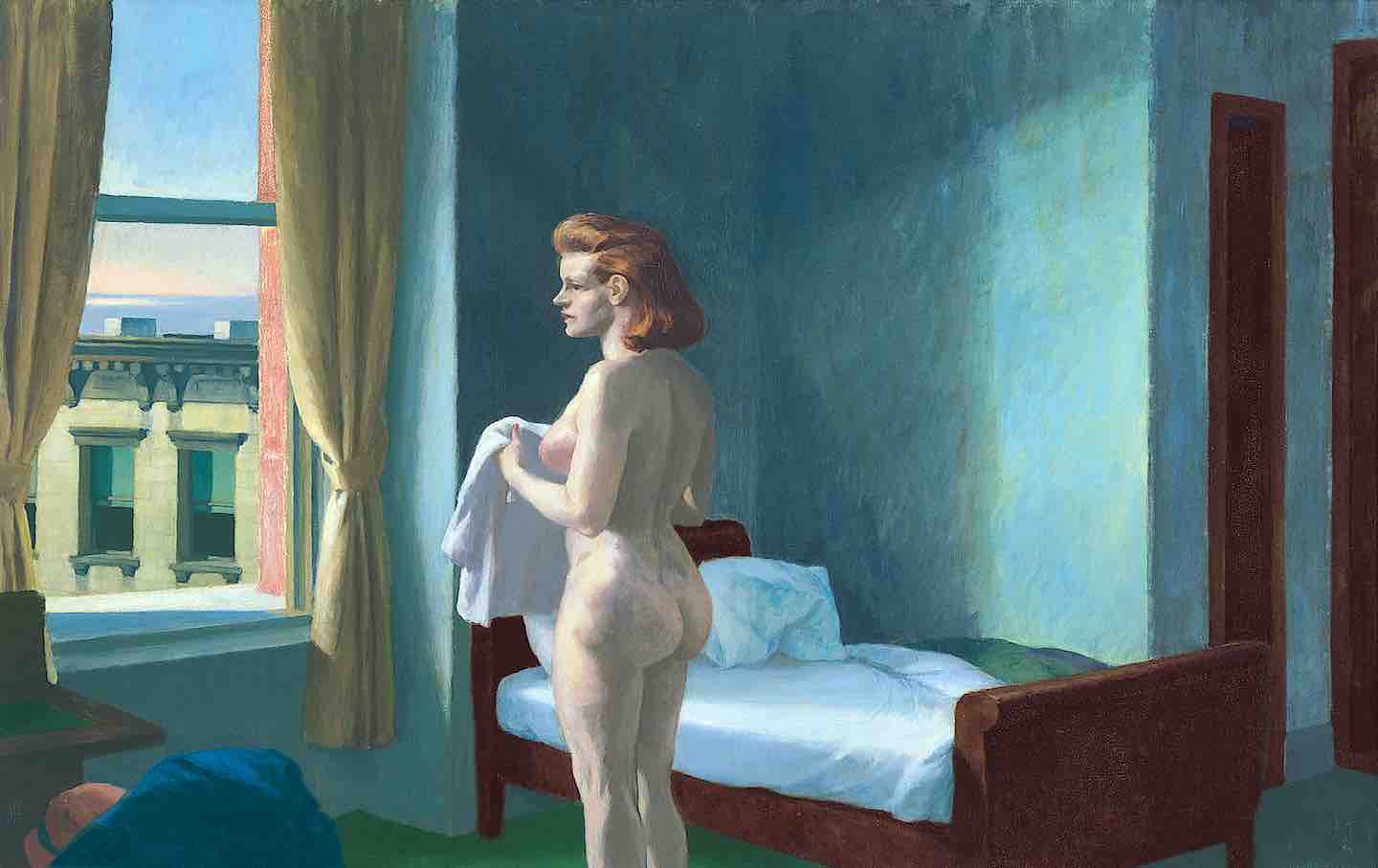
The Harrowing Ardor of Heather Lewis The Harrowing Ardor of Heather Lewis
Her fiction was miscast as merely transgressive. Rather, her novels were interested in understanding life in its most unvarnished and unmediated.

What the Paiva Family Means to Brazil What the Paiva Family Means to Brazil
In I’m Still Here, one Brazilian clan’s confrontation with the military dictatorship dramatizes the last half-century of Brazil’s democratic travails.
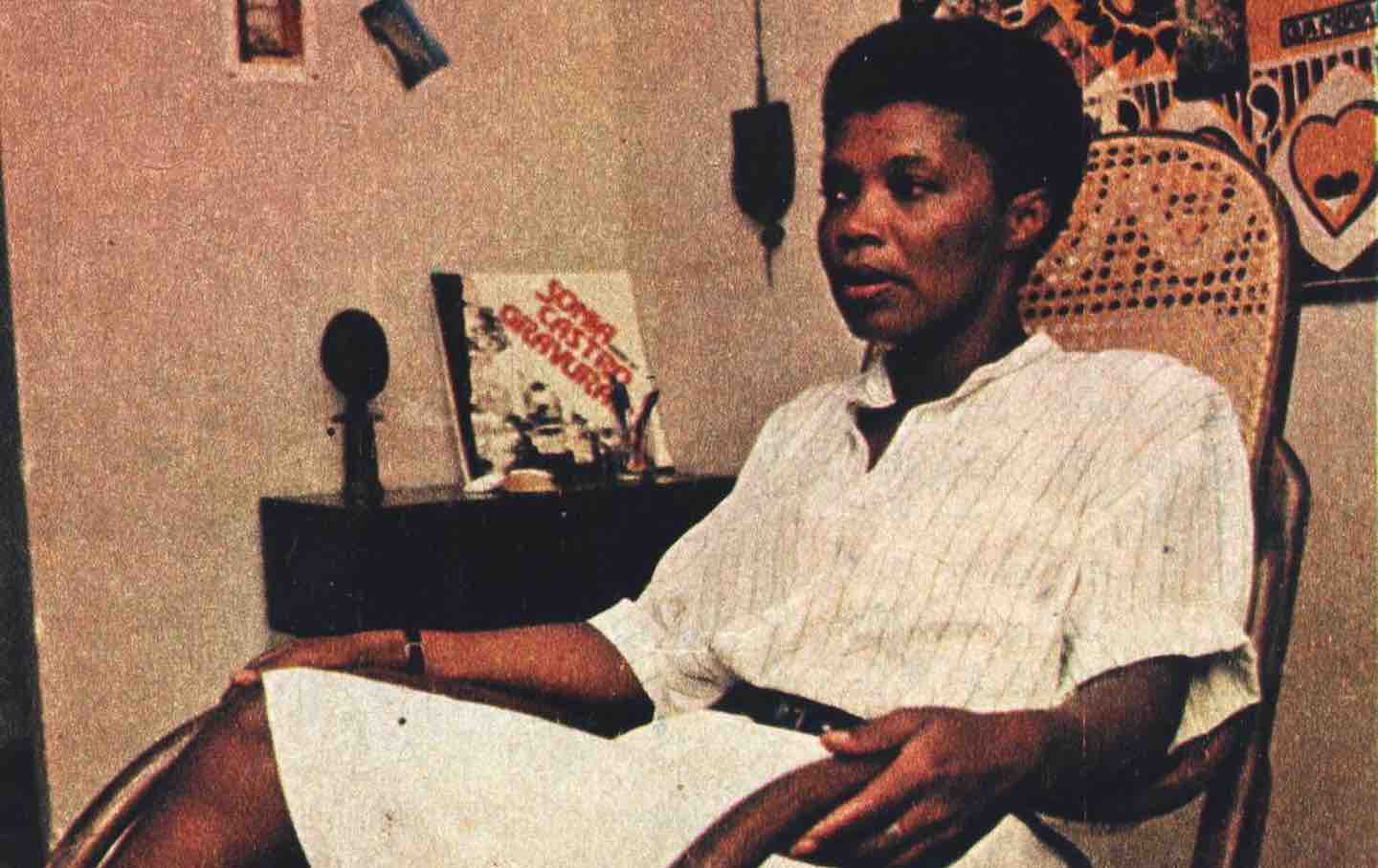
Beatriz Nascimento’s Histories of Afro-Brazilian Rebellion Beatriz Nascimento’s Histories of Afro-Brazilian Rebellion
The scholar, poet, and filmmaker devoted her life to sketching out a revisionist historiography of resistance in Latin America but also the world.

“The Pitt” and the Gritty Return of the Hospital Drama “The Pitt” and the Gritty Return of the Hospital Drama
In the frenzied medical drama, the limits and problems of the healthcare system serve as the basis for the show’s plot.

The Uncomfortable Genius of Mike Leigh The Uncomfortable Genius of Mike Leigh
In “Hard Truths,” Leigh reminds us that a family dinner can tell the story of a whole society.
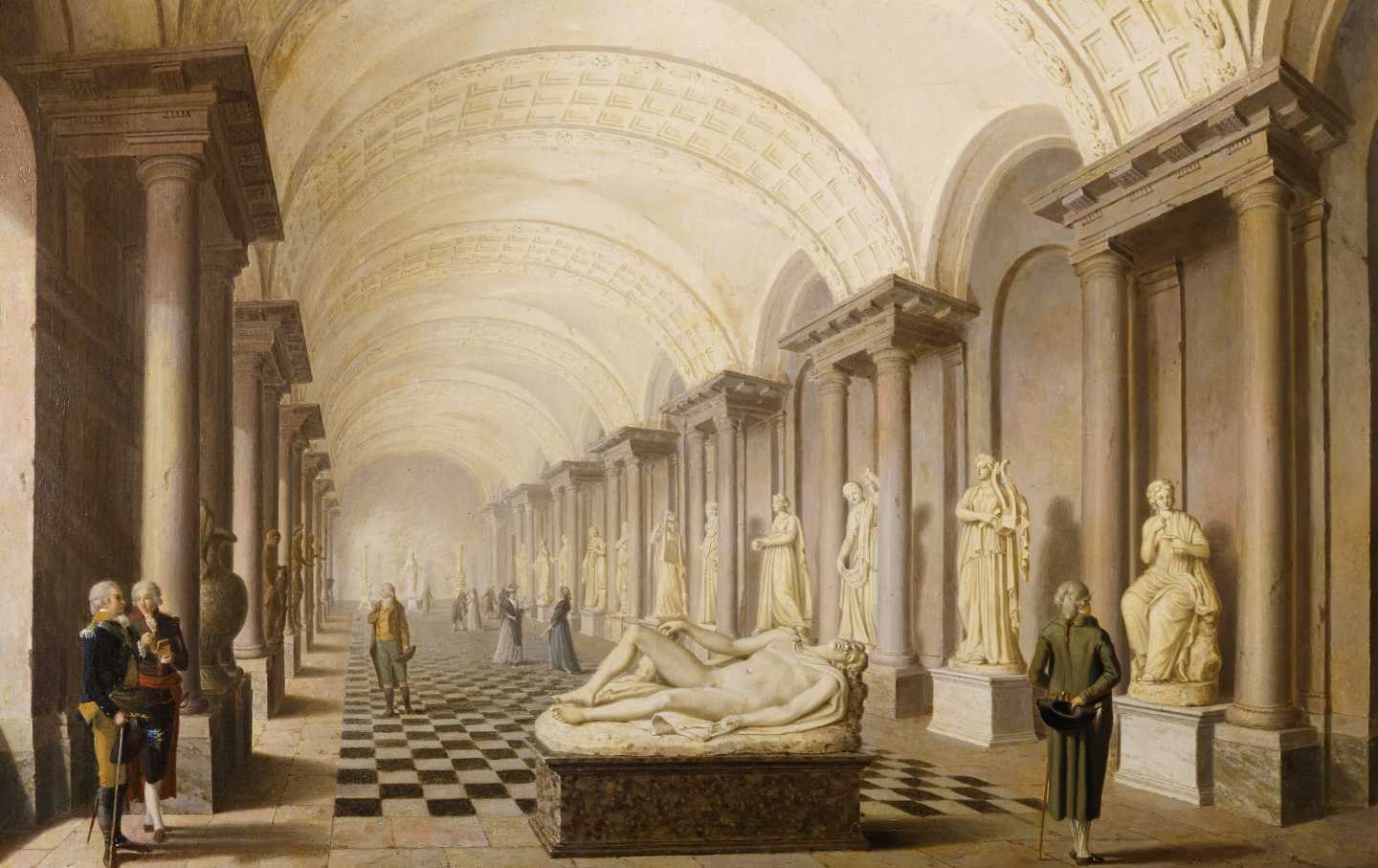
The Real Problem With Trump’s Cheesy Neoclassical Building Fetish The Real Problem With Trump’s Cheesy Neoclassical Building Fetish
Sure, it’s a dog whistle for “retvrn” types and the results are tacky—but that’s not the worst part.


